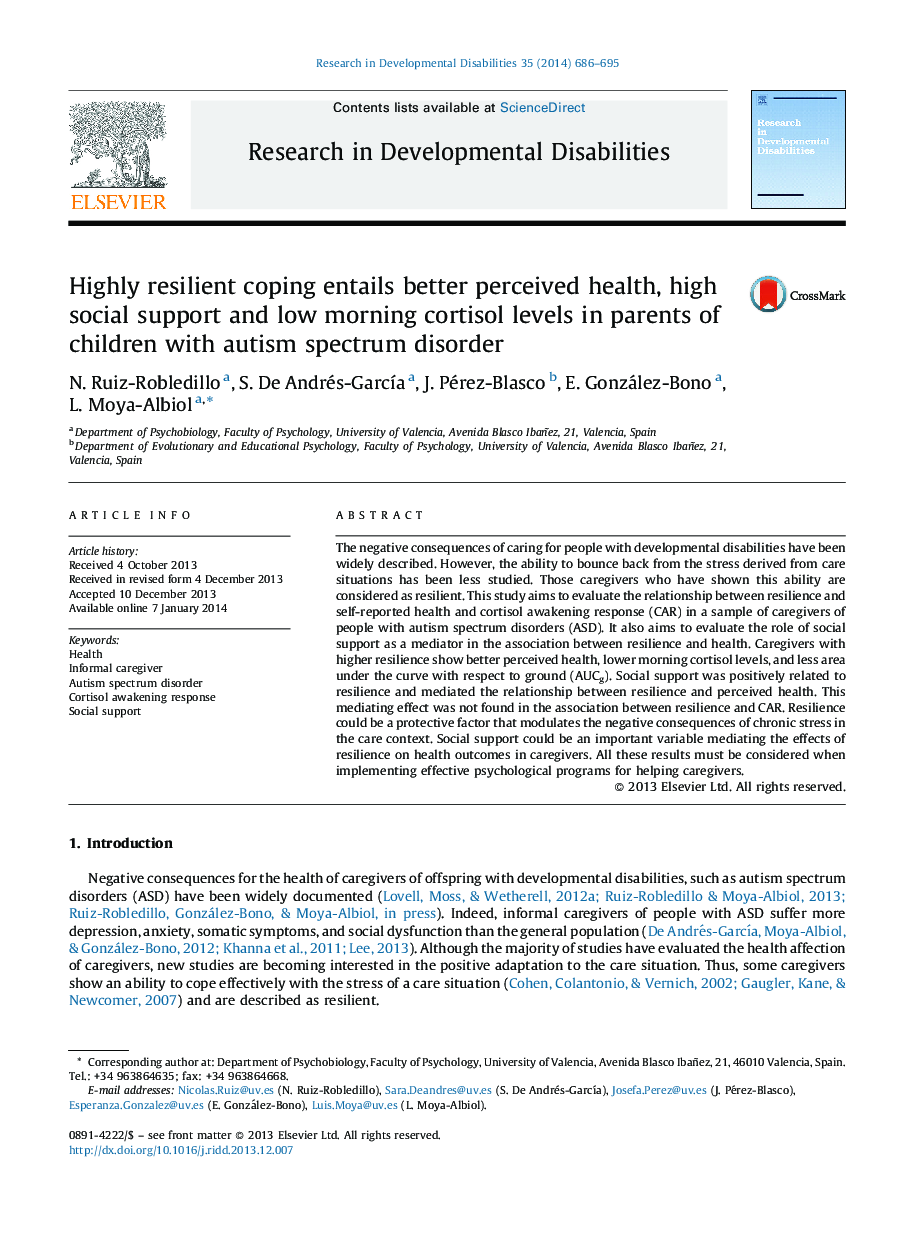| Article ID | Journal | Published Year | Pages | File Type |
|---|---|---|---|---|
| 371392 | Research in Developmental Disabilities | 2014 | 10 Pages |
•We analysed the effects of resilience on health of caregivers of people with autism.•High resilience entails better perceived health in caregivers of people with autism.•High resilience is associated with lower morning cortisol levels in caregivers.•Social support mediates the association between resilience and perceived health.
The negative consequences of caring for people with developmental disabilities have been widely described. However, the ability to bounce back from the stress derived from care situations has been less studied. Those caregivers who have shown this ability are considered as resilient. This study aims to evaluate the relationship between resilience and self-reported health and cortisol awakening response (CAR) in a sample of caregivers of people with autism spectrum disorders (ASD). It also aims to evaluate the role of social support as a mediator in the association between resilience and health. Caregivers with higher resilience show better perceived health, lower morning cortisol levels, and less area under the curve with respect to ground (AUCg). Social support was positively related to resilience and mediated the relationship between resilience and perceived health. This mediating effect was not found in the association between resilience and CAR. Resilience could be a protective factor that modulates the negative consequences of chronic stress in the care context. Social support could be an important variable mediating the effects of resilience on health outcomes in caregivers. All these results must be considered when implementing effective psychological programs for helping caregivers.
